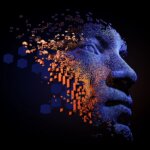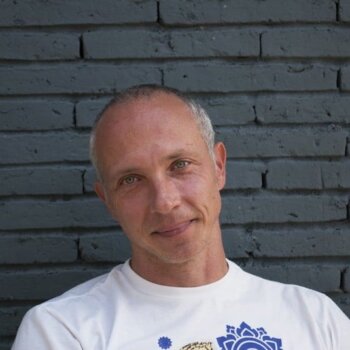Key Takeaways:
- We would answer by referencing our cardinal points of orientation—things most of us will tell you “define a life”.
- When we limit our openness, we are engaging the world mostly with attempts to control or change it, so that it reinforces and safeguards our preconceptions—our narrative self.
- In The Untethered Soul, author Michael Singer writes that samskaras are “cycles of stored past energy patterns” with no place to go, and that they form blockages in our ability to flow with the real world.
- The only permanent solution to our problems is to go inside and let go of the part of ‘us’ that seems to have so many problems with reality.
- If we look for familiarity, or focus on protecting our samskaras, then we aren’t being present and we aren’t seeing the novelty with which every new experience truly presents itself, if we allow ourselves to see it—to be in it.
- When I free myself of my mind’s prison, the samskaras I have clung to can no longer drag me down with them, because I have let go of them.
Who am I?
It seems like such a simple question. Most of us wouldn’t hesitate. We would answer by referencing our cardinal points of orientation—things most of us will tell you “define a life”. We give them labels to point toward our lineage, contexts and shared rituals. The most powerful of these identity-givers are our personal trials and travails, both won and lost.
We drag these things around with us, everywhere, as though they are fixed, and as though they neatly answer the question of who we are. As a result, we are unfree, and unable to partake in life without the burden of labels that affix what is fluid, and artificially simplify what is deeply complex.
By confusing ourselves with our labels, we are engaging in acts of self-sabotage.
How?
There are two problems with dragging the past around with us. The first is that once we label something, we stop actually seeing it. From the moment we’ve defined it, all we see is the perfunctory value that we’ve given to it. Over time, we become slaves to our own black-and-white narratives, rather than participants in technicolor reality.
Labeling is a self-fulfilling prophecy of sorts.
That includes, first and foremost, labels relating to “self”.
The second problem is that we become dependent on the labels we’ve given ourselves, and see everything that challenges our narratives as a threat. We thus spend an inordinate amount of energy somewhere other than “here”, combatting any and all perceptual challenges to our stories: waging war against the world to protect the house of cards called “identity” that we’ve built.
We become so fixated on defending, protecting and reinforcing the labels that we’ve somehow concluded define who we are, that we miss literally everything that occurs outside of these self-imposed straitjackets.
We do this nearly every moment of every day, until our last.
In the process, we lose touch with the true self, and with life.
So who am I?
We are no more than senses and acts. Everything else is made up, and dilutes the power of raw experience. We are audience and creator—in a perpetual pas-de-deux with everything we encounter—in flow. The more we let ourselves be in the moment, open and without forcing meaning or outcomes upon it, the more meaningful it ironically becomes, and the more fundamentally it can move and change us. The alternative is to measure the present against a past we wish to reinforce and a future we wish to control, missing the proverbial forest for the trees, and cheating ourselves out of open engagement and growth.
When we allow ourselves to live free of our armor—to be without filtering—the more the energy of the world flows through us; with us.
As the author of a powerful little book, The Untethered Soul, puts it, “If you make lists of how the world must be for you to open [by which he means be fully present], you have limited your openness to those conditions.”
When we limit our openness, we are engaging the world mostly with attempts to control or change it, so that it reinforces and safeguards our preconceptions—our narrative self. How backward is that, to try to beat the world into submission, so that our preconceptions of it remain uncontested, rather than allowing it to teach us something?
Samskaras
The grooves our thoughts make in our brains when we reinforce them make it easier for our minds to follow establishedpaths over creating new ones. The Hindus call these samskaras.
In The Untethered Soul, author Michael Singer writes that samskaras are “cycles of stored past energy patterns” with no place to go, and that they form blockages in our ability to flow with the real world.
Meditators know this well. We learn to become present behind our thoughts, noticing them without attachment—i.e. labels and judgement… ego—so that they don’t turn into samskaras, and interrupt our true being.
With regard to samskaras, a post I read put the problem well:
“When [our] actions are repeated on a continual basis, they become a habit and tend to be performed more mindlessly as opposed to mindfully. The stronger these habits become, the less power we have over our minds the next time these actions are executed.”
So how do we break the habit of labeling and judging, then controlling the world so that it conforms with our narrative selves, and doesn’t disturb the samskaras that litter our hearts, blocking our ability to flow, live and learn?
As Singer puts it, it begins with the realization that we need to
“…change from ‘outer solution consciousness’ to ‘inner solution consciousness’. We have to break the habit of thinking that the solution to our problems is to rearrange things outside. The only permanent solution to our problems is to go inside and let go of the part of ‘us’ that seems to have so many problems with reality. Once we do that, we’ll be clear enough to deal with what’s left.”
This, to me, was an “aha’ moment.
“What’s left” is usually a collection of samskaras; and once we can see them clearly, we understand that they are usually (always) conclusions fashioned from true experiences that bumped up against other samskaras that we’d created, in order to protect ourselves from reality.
Everything that bothers or upsets us is pointing out a samskara—something we have yet to learn to make peace with, so that we can become more present in our own lives.
Singer writes:
“Your definitions of desirable and undesirable, as well as good and bad, all come about because you have defined how things need to be in order for you to be okay.”
In my view, a lifetime spent attempting to make reality conform to our needs is a lifetime mired in exhaustion, and misery.

Being
When we are busy being, we don’t have time to judge experience. Being leaves a strong psychic impression on us whether or not we label it, and becomes part of our impression of the world.
Labels not only cheapen experiences by oversimplifying them and attaching pat judgements, they also become future limits against which we measure everything else in an attempt to conform it to our earlier judgements.
Being generates feelings of love, awe, optimism, connectedness, hope and potency. Judging separates us from these things. Singer argues that the only way to be in the world is to stop holding onto experiences—to stop turning them into memories.
Not hold onto memories? WTF?!
Memories—good and bad—are, to Singer, impediments to being. Just as negative samskaras (grievances, hurt, resentment) create blockages that weigh down our hearts,
“Clinging creates positive samskaras… Hence two kinds of experiences can occur that block the heart. You are either trying to push energies away because they bother you, or you are trying to keep energies close because you like them. In both cases, you are not letting them pass, and you are wasting precious energy by blocking the flow [of energy] through resisting and clinging.”
He goes on:
“The alternative is to enjoy life instead of clinging to it or pushing it away. If you can live like that, each moment will change you. If you are willing to experience the gift of life instead of fighting with it, you will be moved to the depth of your being.”
Reflect for a moment on some of your most memorable experiences—the things that really moved you. We all have them. What made them so? Chances are, you were fully present, so that the experience had a chance of reaching your depths. Chances are also that you didn’t yet have a label for it because it was novel, and thus you were actually seeing it for what it was, rather than what you were projecting into it.
These two preconditions—presence and novelty—don’t need to be reserved for special occasions. The novel can happen every day, everywhere, even in familiar contexts. It’s how we approach living that makes the difference. If we look for familiarity, or focus on protecting our samskaras, then we aren’t being present and we aren’t seeing the novelty with which every new experience truly presents itself, if we allow ourselves to see it—to be in it.
We experience this difference daily. We all know people who somehow seem to be internally lit—who see the glass as half full, and engage with the world with excitement, no matter what’s thrown their way. We tell ourselves it must be because they are lucky; that they haven’t known heartache; that they were in the right place at the right time; that they know the right people; that their circumstances gave them advantages; etc. etc.
The truth is that they are like that because they are samskara-free, and thus fear-free. They see the world through infinite possibility, instead of finite limitation. They see opportunity rather than risk. They are able to do this because they aren’t dragging a lifetime of samskaras around them.
A magnet on my door reads:
“Let go or be dragged.”

Singer writes:
“That which is blocked and buried within you [samskaras] forms the root of fear. Fear is caused by blockages in the flow of your energy. When your energy is blocked, it can’t come up and feed your heart. Therefore, your heart becomes weak. When your heart is weak it becomes susceptible to lower vibrations, and one of the lowest of all vibrations is fear. Fear is the cause of every problem. It’s the root of all prejudices and the negative emotions of anger, jealousy, and possessiveness. If you had no fear, you could be perfectly happy living in this world. Nothing would bother you. You’d be willing to face everything and everyone because you wouldn’t have fear inside of you that could cause you disturbance.”
The moments in life that mark us most deeply don’t do so because of our man-made “identities”: name, job, provenance, group affiliation, station, appearance, interests or even character traits. They do so because we have opened ourselves to experiencing them, and allowed them to flow in and through us, and thereby change us; and as soon as they have, we let them go, because we have already fed on them.
Who am I?
I am the person having experiences, flowing with the world as it presents itself, moving and being moved by the forces and people around me, as a result of which I am continuously growing; evolving; changing. I am alive, because I can feel these things. And the psychic impressions made by a lifetime of being makes us omnipotent in our own lives.
Change is change, whether or not we cling to its past triggers.
When I label—myself, or others—I am no longer me. I, and everything I label, become fictions. Ideas. Sets of one-dimensional abstractions of experience, weighing me down and preventing me from living in—and recognizing—glorious complexity.
When I free myself of my mind’s prison, the samskaras I have clung to can no longer drag me down with them, because I have let go of them. When I do that, I learn—to paraphrase Vivian Greene—“that life is about learning to dance in the rain, rather than waiting for the storm to pass.”
That’s another magnet on my door.

Try it some time. Literally. The way we used to, as children, free of worry, judgment and self-defeatism.
With presence.
It’s wildly freeing.
As Shel Silverstein put it so aptly, metaphorically, in one of my favorite poems:
“Let it rain on my skin,
It can’t get in—
I’m waterproof.”






























